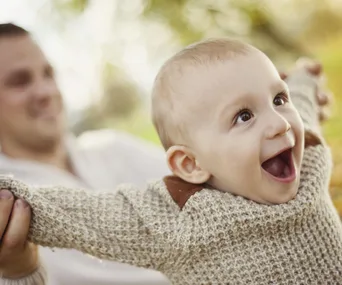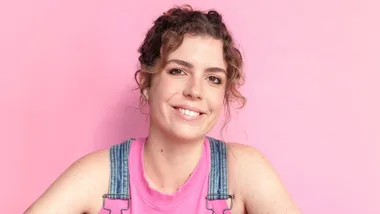As more than 100,000 people gathered at Auckland’s Eden Park for one of the country’s biggest concerts, global pop sensation Pink, Maria BojÓrquez Pouniu was busy preparing a special area of the stadium with a colourful ambience of its own to support fans with autism.
The sensory room she designed and created featured relaxing music, tactile furnishings, calming lights, a gyrochair and weighted blankets. Every aspect was specifically made to support people with autism, who can find large crowds, loud noises and the excitement of such grand-scale gatherings overwhelming.
As a play coach for Autism New Zealand and mum of five-year-old Mattias, who is autistic, Maria knew it would be in high demand for both of Pink’s high-energy shows.
“We had over 120 people come – some just for a little while to re-regulate and some returned a number of times,” says Maria, 41, who worked on the custom zone with husband Mac Mata’utia Pouniu.
The pair were first asked by FIFA to establish the facility at Eden Park for the Women’s World Cup 2023. They wanted the event to be more inclusive to the neurodivergent community.
Maria and Mac were delighted to put their knowledge to wider use. And it’s been so successful, the couple now manage it on an ongoing basis.
The high-profile request to work with Eden Park comes after the success of the couple’s Mt Albert-based Spectroom Play Zone, which opened in 2022. It is designed by them especially for children with autism.
Autism is a neuro-developmental condition that affects cognitive function, sensory and social processing, and changes the way people see the world and interact with others.
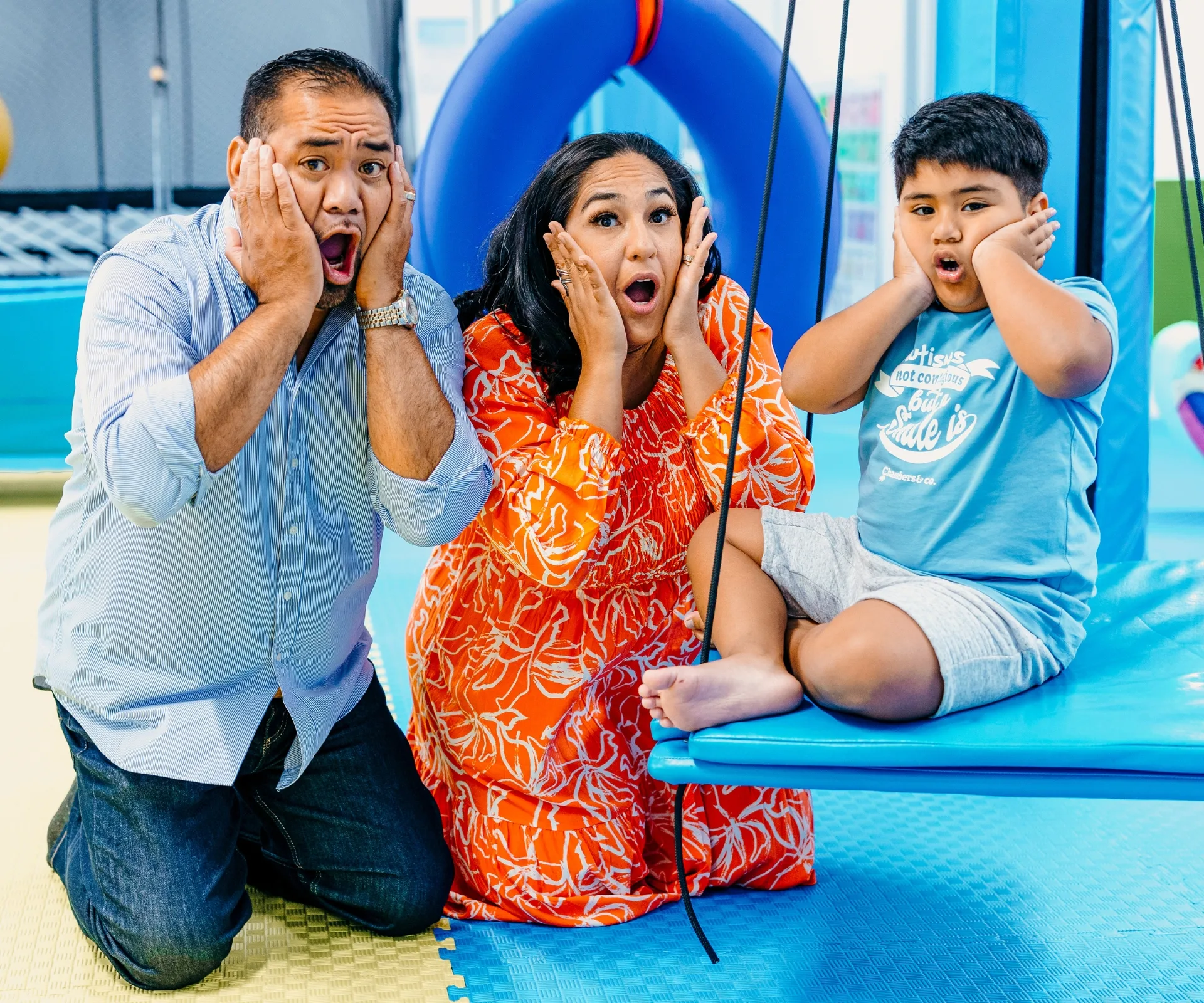
Diagnosing Mattias
For Maria and Mac, it all began with the birth of their beautiful baby boy Mattias.
“Autism is an invisible disability, so people who meet Matti wouldn’t immediately know he was neurodivergent,” says Maria.
What they would notice though, she says, is his avoidance of eye contact, his preference of being alone and despite his ability to speak, the fact he’s unable to hold a conversation but instead tends to repeat what is said to him, which is known as echolalia.
He also finds crowds and loud noises overwhelming, has some challenges with socialising, and has specific sensory needs related to food and movement.
“He’s always on the go!” tells Maria, who will never forget her first cuddle with newborn Mattias.
“When they laid him on my chest, the warmth of his body and his beautiful little cry… It was the most gorgeous sensation and he was the most gorgeous baby.”
Within a few hours though, Maria felt that something was different about Mattias. While the other mums could stop their babies crying, she wasn’t able to soothe him.
“I asked those around me in hospital if they thought he was okay, but they said it was natural for a new mum to be concerned. They reassured me he was just like every baby.”
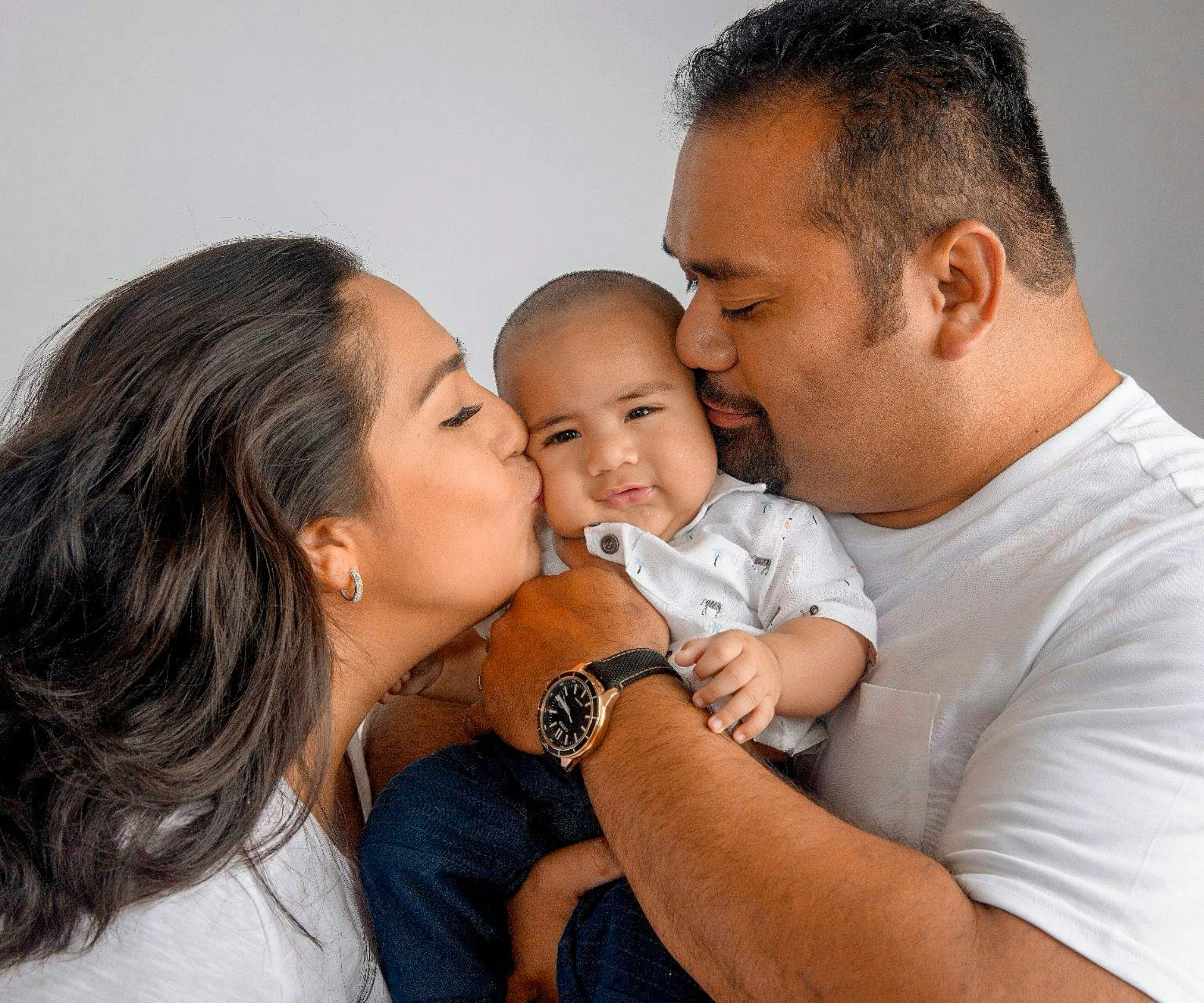
As time passed, the couple became more concerned and acutely aware that other children Mattias’ age were reaching milestones like crawling, while he wasn’t.
“There were other signs there was something different,” says Maria. “He didn’t like us touching him, didn’t sleep well, avoided eye contact, and never smiled socially. I’d see all the mamas at the playgroups rocking their babies to sleep. But, every time I held Matti, he would just scream like something was hurting.
“Even the Plunket nurse and doctor, when I expressed concerns, would tell me he was a healthy baby and that I was overthinking things.”
Maria explains that through their own intensive research, “Everything pointed to autism.”
She recalls, “When he was eight months, I saw a video on YouTube of an autistic toddler. It made me realise the way Matti behaved was the same. At that moment, it literally hit me like a train that Matti was definitely autistic.
“It’s really hard to find a diagnosis so young here in New Zealand, so we turned to Mexico, where I grew up. There’s a lot of support regarding the neurodivergent community there and a lot of paediatric services too.”
Mattias was 14 months old when he was assessed by a neuro paediatrician in Mexico via video link. The diagnosis was “general development delay”, with the paediatrician confirming Matti was autistic.
A specialist in Aotearoa officially diagnosed Mattias at the age of 18 months.
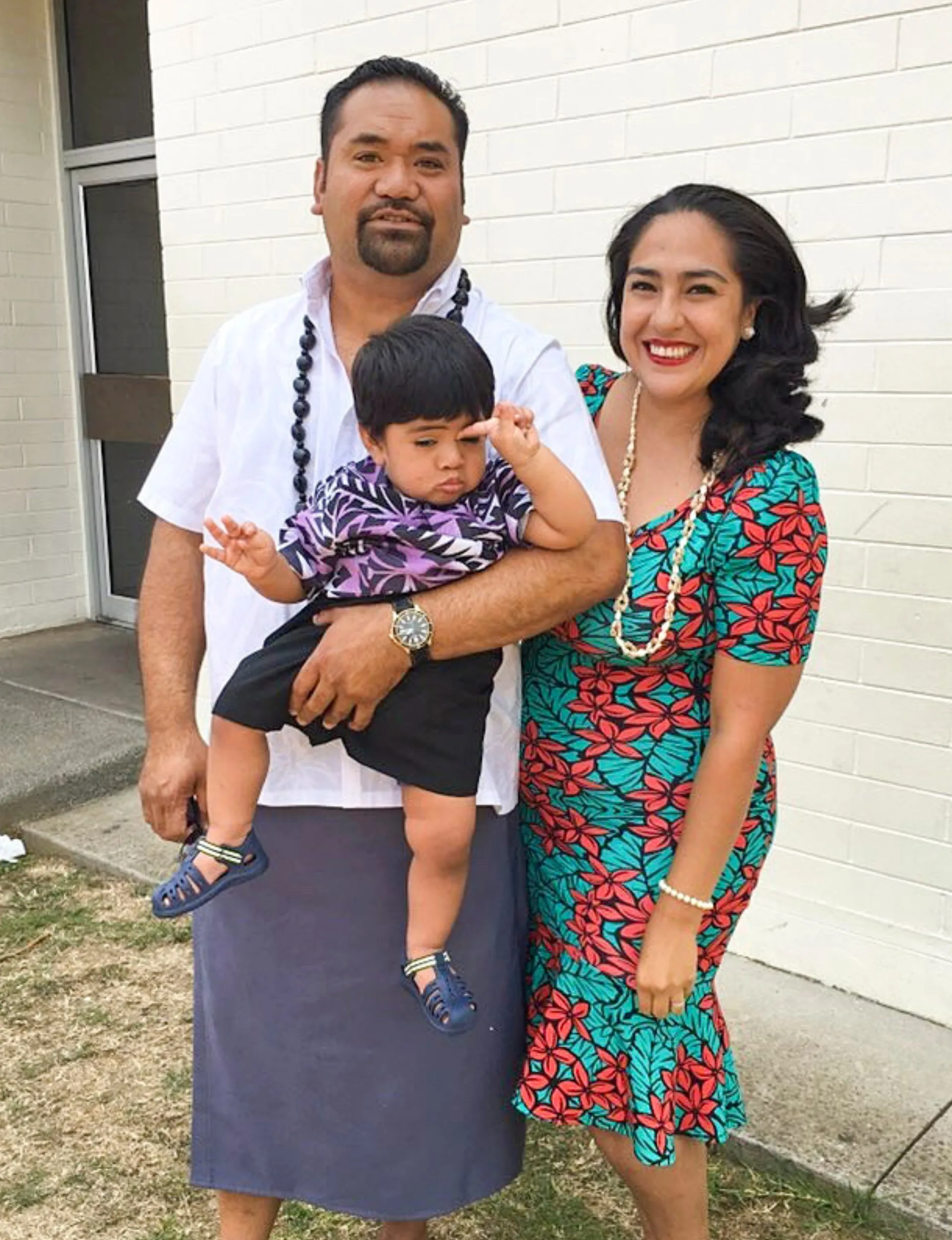
A change of plans
Devoted dad Mac, 41, shares, “I needed time to grieve because I felt like I wasn’t ready for this.
“I’d had all these plans in my head, to play rugby with my son and so many other things. But then I said to Maria, ‘Let’s take the bull by its horns and learn everything we can about autism. Let’s do it for him.’”
Mac and Maria both decided to change careers to focus on their son’s needs. Maria switched from marketing to a job with Autism New Zealand, initially becoming an outreach coordinator, and Mac took a step back from his commitments with his security firm.
Then during a playdate at an indoor play area with other families who also had autistic children, the couple realised the need for a specifically designed facility.
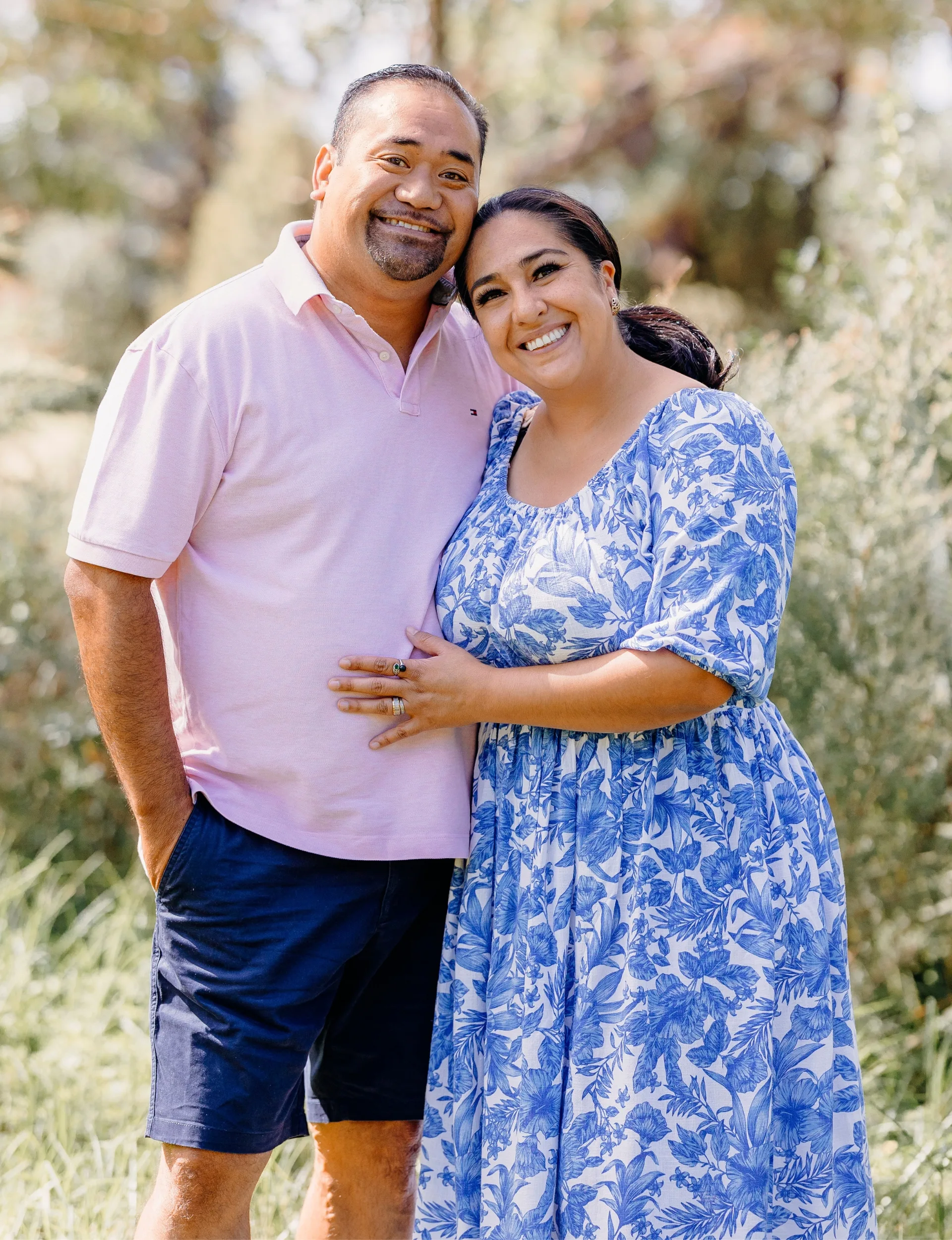
“That experience lasted only 15 minutes because our kids couldn’t handle the noise,” remembers Mac, who with Maria that same evening decided they would create a specialised play zone.
It took months to find the right building, and research and order quality, sustainable equipment. Unable to source grants or funding, they decided to use their life savings.
By this time, Maria had trained with Autism New Zealand as a play coach.
“My background helped a lot,” she says. “Our aim was to have something that caters not only for our kids, but also for the parents. We wanted parents to be able to sit down. Otherwise, with autistic children, we are always having to hover around our babies.”
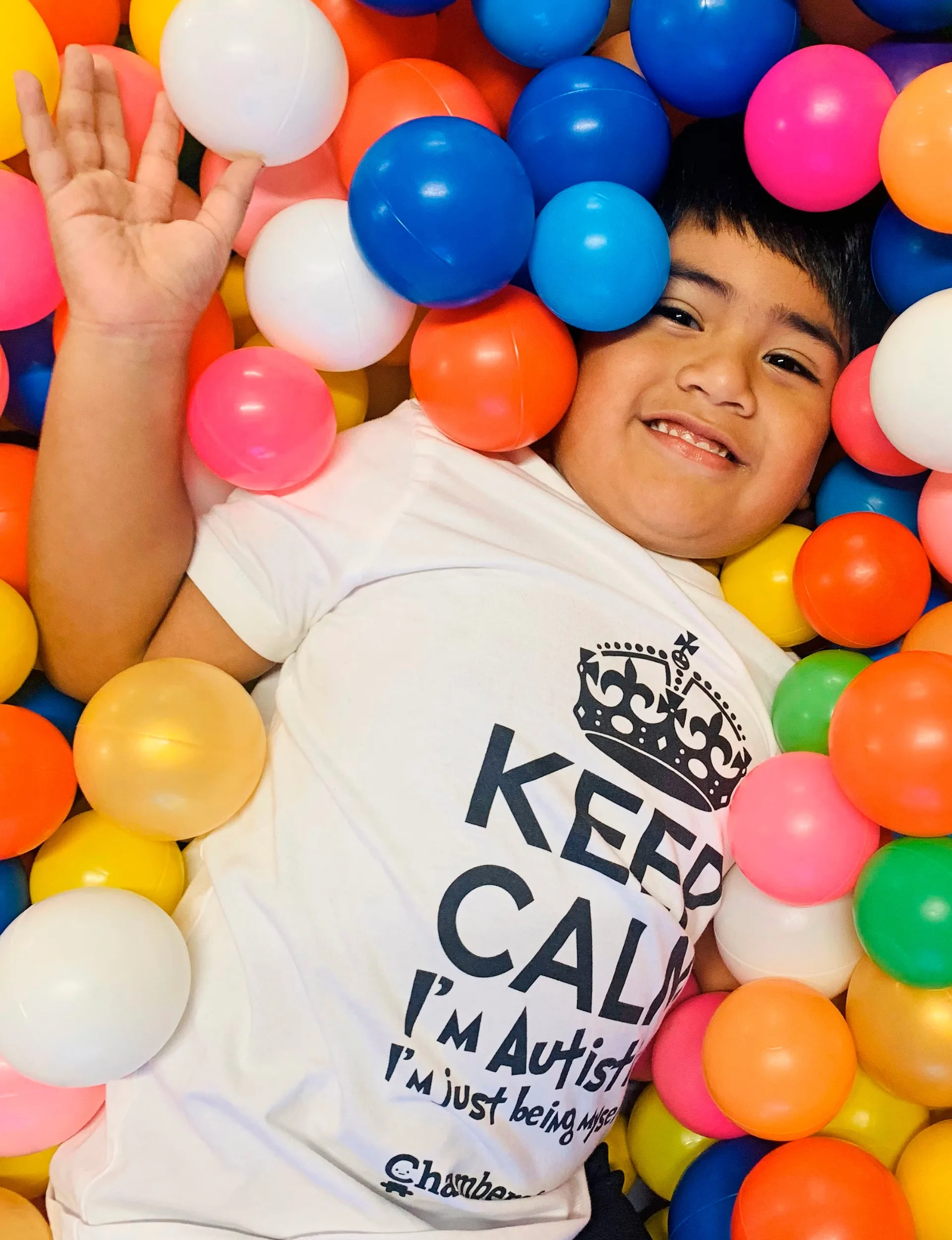
Many late nights were spent with family and friends reconfiguring walls and decorating, and 15 months after their idea’s conception, they opened the doors to Spectroom Play Zone in Mount Albert.
Sensory equipment was identified as being vital, with a whole room dedicated to a calming space with soothing lights and soft music. This doubles as a treatment room for therapists to work from. Other equipment inside the 375m2 facility includes a large trampoline, zipline with crash pit, swings, soft play and a slide with massaging cushions.
Demand is so popular that a booking system is essential to limit numbers.
“We didn’t realise how big the autistic community is and the lack of support,” says Mac. “The space is not just about our kids playing in a safe environment. It’s where our families can feel comfortable sharing ideas, sharing journeys and learn more.
“Maria and I also help others navigate the process to source support. We’ve lived the journey. We know how challenging it is and wanted to give back. For us, it’s always been about community.”
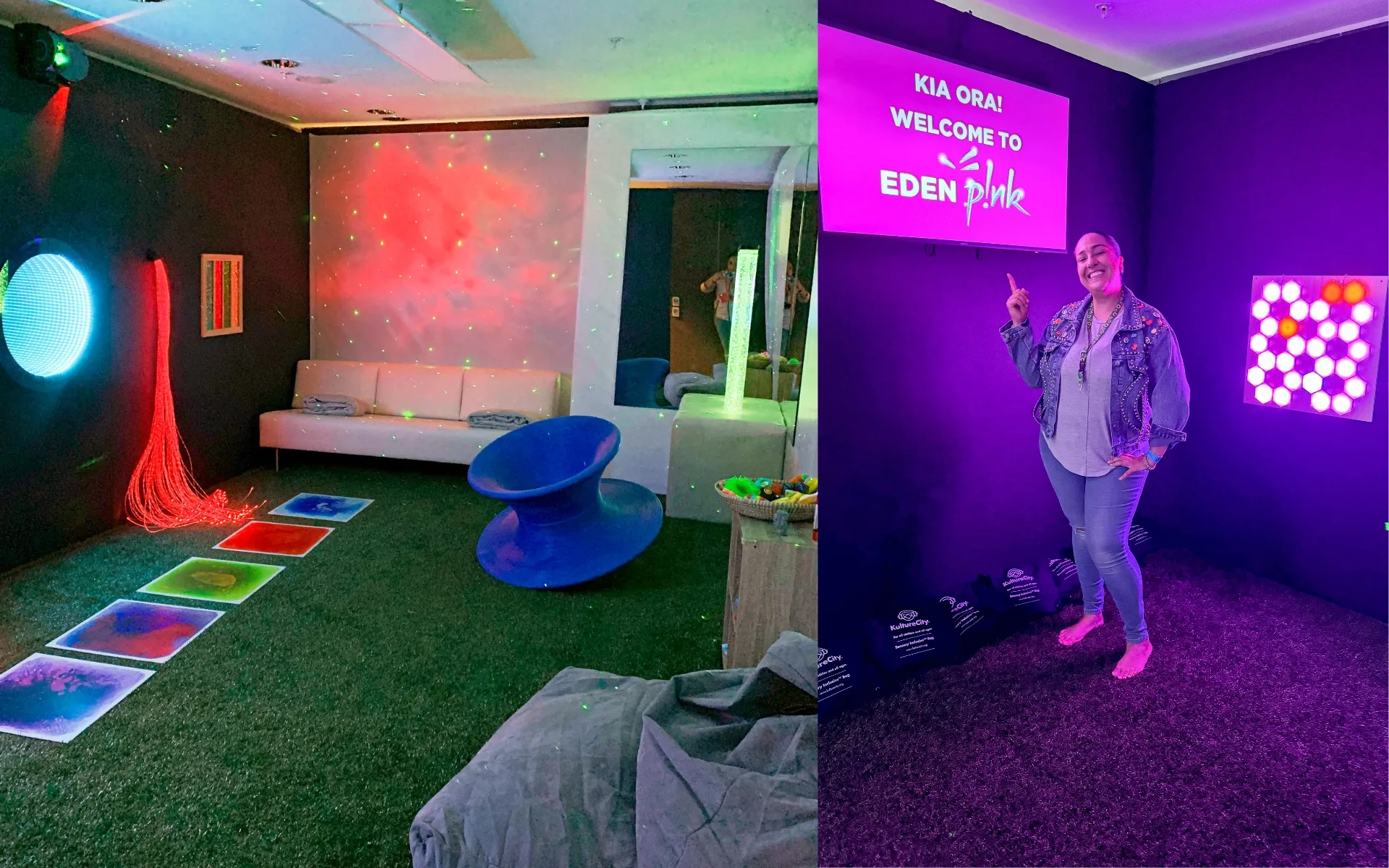
Allowing autistic people to be their authentic selves
Seeing Mattias’ delight playing at Spectroom reinforces that the path the couple chose to follow was the correct one.
“At Spectroom, he can be himself without judgement,” explains Maria. “Stimming is common in autistic children. It’s repetitive movements or sounds that help them to cope with emotions or being overwhelmed. When Mattias stims, he moves his hands and looks like he’s doing tai chi. I’ve seen other parents side-gaze, but here at Spectroom, kids can play judgement-free.”
As well as going on to also set up the Eden Park facility, the couple is now helping schools create spaces of their own. And, they’re building a portable facility for outdoor events and festivals. Requests for help have also come from other stadiums and even overseas.
“Greater knowledge and acceptance are so important,” says Maria. “Once you know about the traits, if you see a mum or dad with a child on the floor having a tough time, instead of turning your head, you could ask, ‘Is there any way I can help you?’ That goes a long way.”
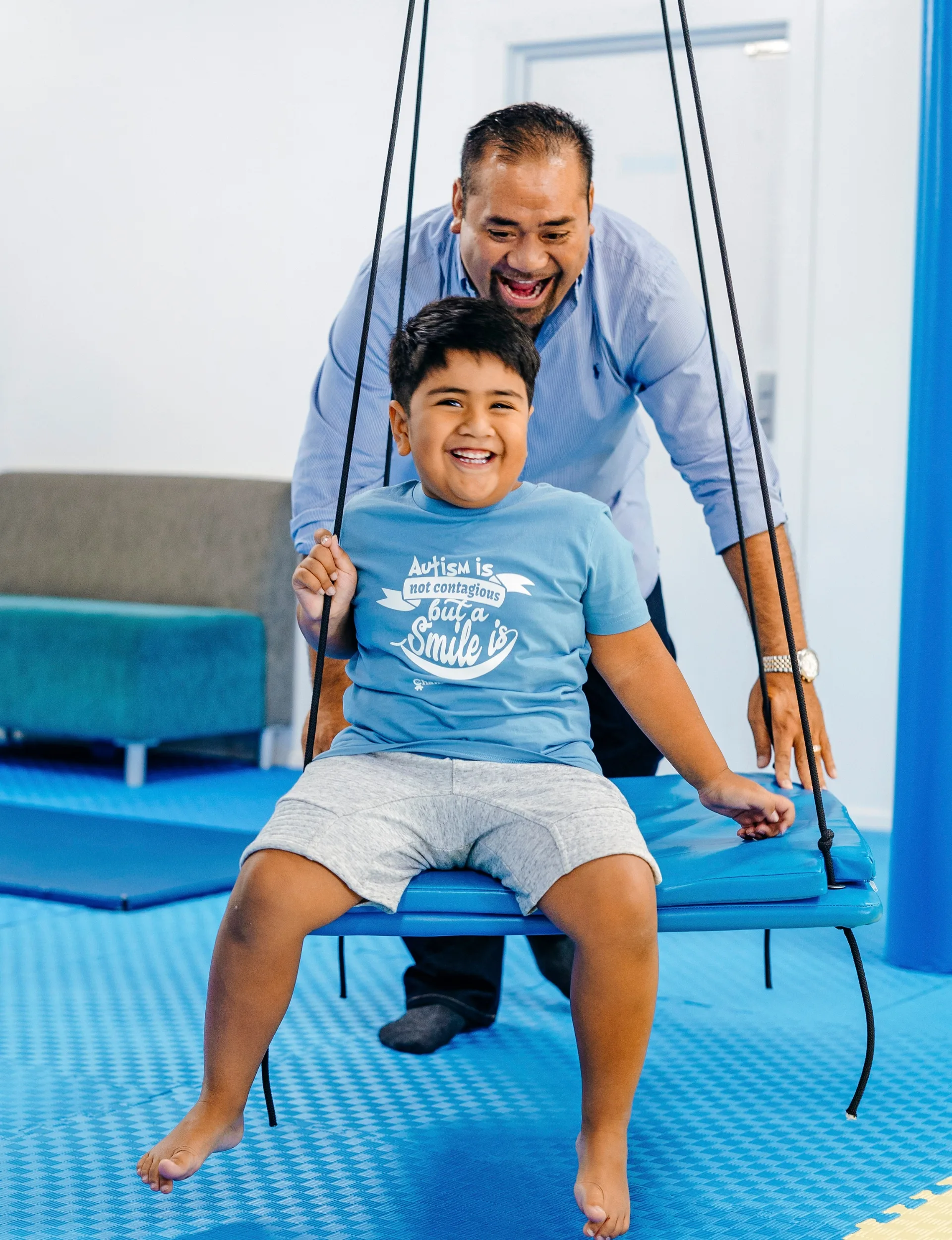
While they’ve navigated many challenges together, both agree being Mattias’ parents is such a joy.
From being fully non-verbal, Mattias – who loves letters and numbers – can now count in English, Spanish and Samoan (since Mac is Samoan) and say the alphabet in three languages.
“We’ve learned so much about what he loves,” Maria enthuses. “He’s such a happy chappy – always smiling and laughing. We’re so proud of him.”
Mac continues, “He still cannot have a conversation. But he expresses his needs and lets us know how much he loves us by squeezing our arms or faces. He lets us hug him now too. It’s such a blessing to be on this journey – we wouldn’t change a thing!”
For more information about Autism Spectrum Disorder, visit autismnz.org.nz
Autism awareness month
April is Autism Acceptance Month, with World Autism Awareness Day on April 2.
In a nationwide movement for acceptance, understanding and accessibility, Autism New Zealand is also introducing a national “quiet hour” on Wednesday, April 10 at 10am, inviting people to, “Turn down the lights, turn down the noise and turn up for the autistic community of Aotearoa.” To find out more, visit autismnz.org.nz/autism-acceptance-month
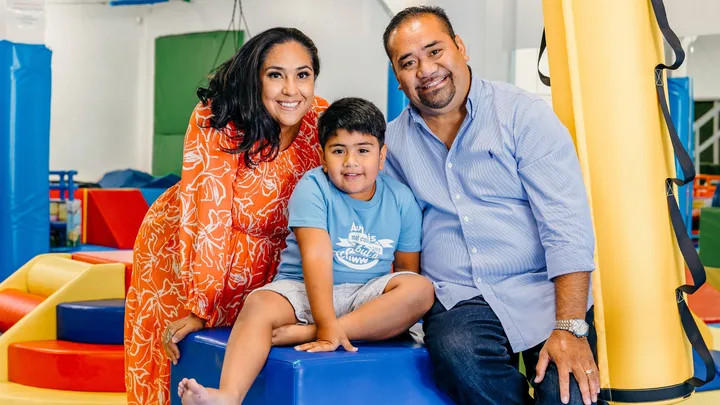 Photos: Emily Chalk
Photos: Emily Chalk
